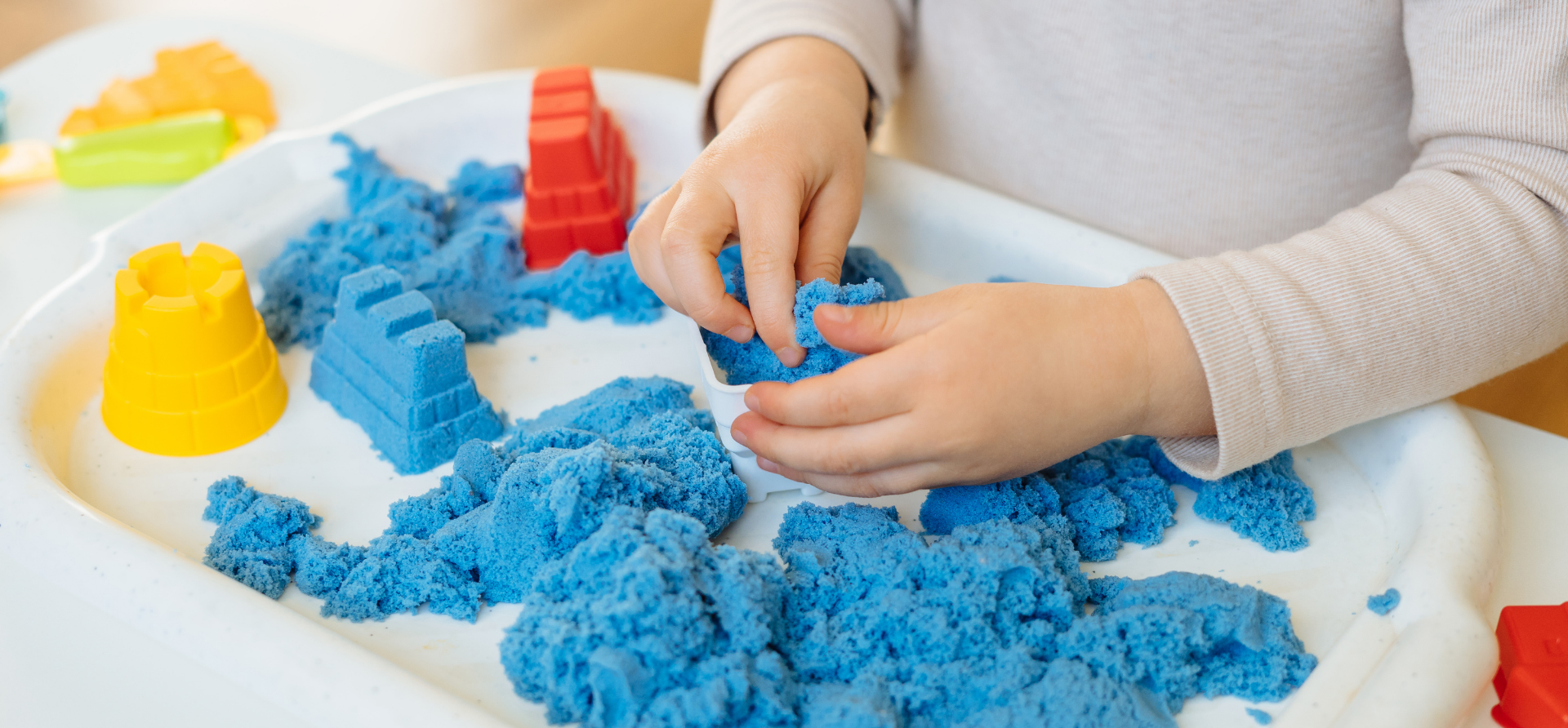Handling Challenging Behavior in Preschoolers: Strategies for Parents

As parents and caregivers, we all know that raising young children comes with its challenges. Preschoolers, in particular, are at a stage in their development where they are learning how to regulate their emotions, navigate social interactions, and understand their place in the world. Along the way, this journey often includes challenging behavior that can be difficult to manage.
At Storybook School Orlando, we understand that handling challenging behavior is an essential part of early childhood development. It’s important to remember that challenging behaviors, whether they involve tantrums, defiance, or emotional outbursts, are a normal part of a child’s growth. However, they can also be stressful and overwhelming for parents. The good news is that there are many strategies that can help both parents and preschoolers navigate these moments in a healthy and positive way.
In this blog post, we’ll explore some effective strategies for managing challenging behavior in preschoolers, all while fostering a strong parent-child relationship and promoting emotional development.
1. Understand the Root Causes of Challenging Behavior
Before reacting to a child’s challenging behavior, it’s essential to first try to understand what may be causing it. Preschoolers don’t always have the vocabulary or self-regulation skills to express their feelings appropriately, so challenging behaviors often arise from unmet needs, frustrations, or overstimulation.
Common triggers for challenging behavior include:
- Hunger or Fatigue: A tired or hungry child is more likely to exhibit difficult behavior. When children don’t have enough energy or proper nutrition, they may act out due to irritability or low blood sugar.
- Overstimulation: Preschoolers are often exposed to a lot of stimuli throughout the day, whether it’s in a busy classroom, at a social event, or even at home. When they become overwhelmed, they may struggle to cope, leading to frustration or outbursts.
- Lack of Communication Skills: At this age, children are still developing the ability to communicate their emotions and needs effectively. If they can’t express themselves verbally, they might resort to physical behavior like hitting, throwing, or yelling.
- Seeking Attention: Preschoolers may act out to get attention, whether positive or negative. They are still learning the best ways to get the attention of their parents and caregivers.
- Big Emotions: Preschoolers often experience intense emotions like frustration, sadness, or anger but may not know how to manage them. These emotions can sometimes lead to behavior that appears challenging.
When you observe challenging behavior, take a moment to consider these possible causes. This understanding can help you respond to your child with empathy, patience, and appropriate strategies.
2. Stay Calm and Model Emotional Regulation
One of the most important things a parent can do when faced with challenging behavior is to stay calm. Children learn how to manage their emotions by observing the behavior of the adults around them. If you react with frustration, anger, or outbursts, your child may feel more upset or confused. Instead, it’s essential to model the emotional regulation you want your child to learn.
Here are some tips for staying calm and modeling emotional regulation:
- Take Deep Breaths: In moments of frustration, it can be helpful for parents to take a few deep breaths before reacting. This not only helps you regain your composure but also provides a moment of pause to assess the situation more clearly.
- Use a Calm Tone: When speaking to your child during challenging moments, use a calm and steady voice. Even if your child is upset, maintaining a calm tone helps them feel safe and reassured.
- Acknowledge Your Own Emotions: It’s okay to let your child know that you are feeling upset or frustrated. You can say, “I’m feeling frustrated too, but we need to calm down so we can talk about this.” This shows your child that it’s okay to feel big emotions, but we must learn how to express them constructively.
By modeling calmness and emotional regulation, you help your child learn how to manage their emotions in a healthy way.
3. Set Clear Expectations and Boundaries
Preschoolers thrive on consistency and structure. Having clear, simple, and consistent rules helps children understand what is expected of them and what consequences follow their actions. However, it's important to remember that setting expectations isn’t about being rigid or punitive—it’s about creating a safe and predictable environment where your child knows what is expected and can feel confident in their behavior.
Here are some tips for setting effective boundaries:
- Keep Rules Simple and Clear: Use language your child can easily understand. For example, instead of saying, "Be good," say, "We use our words to ask for things," or "We don't hit." Be specific about the behavior you want to see.
- Be Consistent: Consistency is key when it comes to discipline. If a child is told that a certain behavior is not acceptable, it’s important to consistently enforce the same rule each time that behavior occurs. Inconsistent responses can confuse children and make it more difficult for them to understand the boundaries.
- Use Positive Reinforcement: Reinforce positive behavior with praise or rewards. When your child follows the rules, praise them for making good choices. Positive reinforcement encourages your child to repeat those behaviors in the future.
By setting clear expectations and boundaries, you help your child feel secure and understand how to navigate social situations and daily routines.
4. Offer Choices to Foster Independence
One of the reasons preschoolers act out is because they are seeking control over their environment. They want to feel empowered and capable of making decisions. Offering choices, rather than simply giving instructions, helps preschoolers feel a sense of control while still adhering to the rules.
For example, instead of saying, "Put your shoes on now," try offering two choices: "Do you want to wear your red shoes or your blue shoes?" This gives your child the opportunity to make a decision and feel more in control of the situation, reducing the likelihood of resistance.
Offering choices can also extend to problem-solving. If your child is upset because they don’t want to clean up their toys, offer choices like, “Would you like to clean up the blocks first or the cars first?” This encourages cooperation and helps your child develop decision-making skills.
5. Teach Emotional Expression and Coping Skills
Preschoolers often struggle with expressing their emotions verbally. When they can’t communicate how they feel, they may resort to challenging behavior. Teaching your child how to express their feelings and cope with frustration is key to helping them navigate difficult emotions.
Here are some ways to teach emotional expression and coping skills:
- Use Emotion Cards or Books: There are many resources available to help children understand and label their emotions. Emotion cards, books about feelings, or simple charts with faces showing different emotions can help preschoolers identify and communicate how they’re feeling.
- Teach Calm-Down Techniques: Teach your child calming techniques, such as taking deep breaths, counting to five, or going to a quiet space when they feel upset. Practicing these skills together will give your child the tools they need to calm themselves in difficult situations.
- Validate Their Emotions: It’s important to let your child know that their emotions are valid, even when their behavior is not. For example, say, “I can see you’re feeling frustrated. It’s okay to feel that way, but we don’t hit. Let’s figure out another way to deal with it.”
By teaching your child emotional expression and coping skills, you’re helping them build emotional intelligence and resilience, which are essential for long-term social and emotional well-being.
6. Seek Support When Needed
Sometimes, despite your best efforts, challenging behaviors persist or escalate. If you find that managing your child’s behavior is becoming increasingly difficult, don’t hesitate to seek support from professionals. Pediatricians, child psychologists, or behavioral therapists can offer additional strategies and insights that may be beneficial for your child’s unique needs.
Additionally, early childhood programs such as those at Storybook School Orlando can provide a structured environment where children learn to navigate social challenges with support from skilled educators.
Handling challenging behavior is just one piece of the puzzle when it comes to your child’s development. As mentioned in our post
7 Advantages of Early Childcare Enrollment, enrolling your child in early childcare programs like ours can provide consistent opportunities for your child to learn social skills, practice emotional regulation, and receive support from educators who specialize in guiding young children through difficult behaviors. Additionally, as discussed in
Is Daycare All Year Round? Here’s the Truth, year-round childcare provides a stable, structured environment where your child can grow and develop, while also giving parents the support they need to manage challenging behaviors with confidence.
Conclusion
Handling challenging behavior in preschoolers can feel overwhelming at times, but with patience, consistency, and the right strategies, you can help your child develop the skills they need to manage their emotions and interact positively with others. By understanding the root causes of behavior, modeling calmness, setting clear expectations, and teaching emotional regulation, you are setting your child up for success in both their social interactions and academic life.
At Storybook School Orlando, we are committed to supporting families through these challenges. Our experienced educators work closely with parents to ensure that each child receives the care and guidance they need to thrive.
By using these strategies and maintaining open communication, you will be better equipped to handle challenging behavior and foster a positive, nurturing environment for your child’s development.













